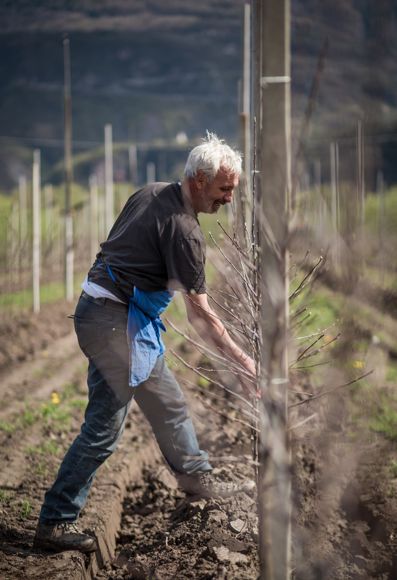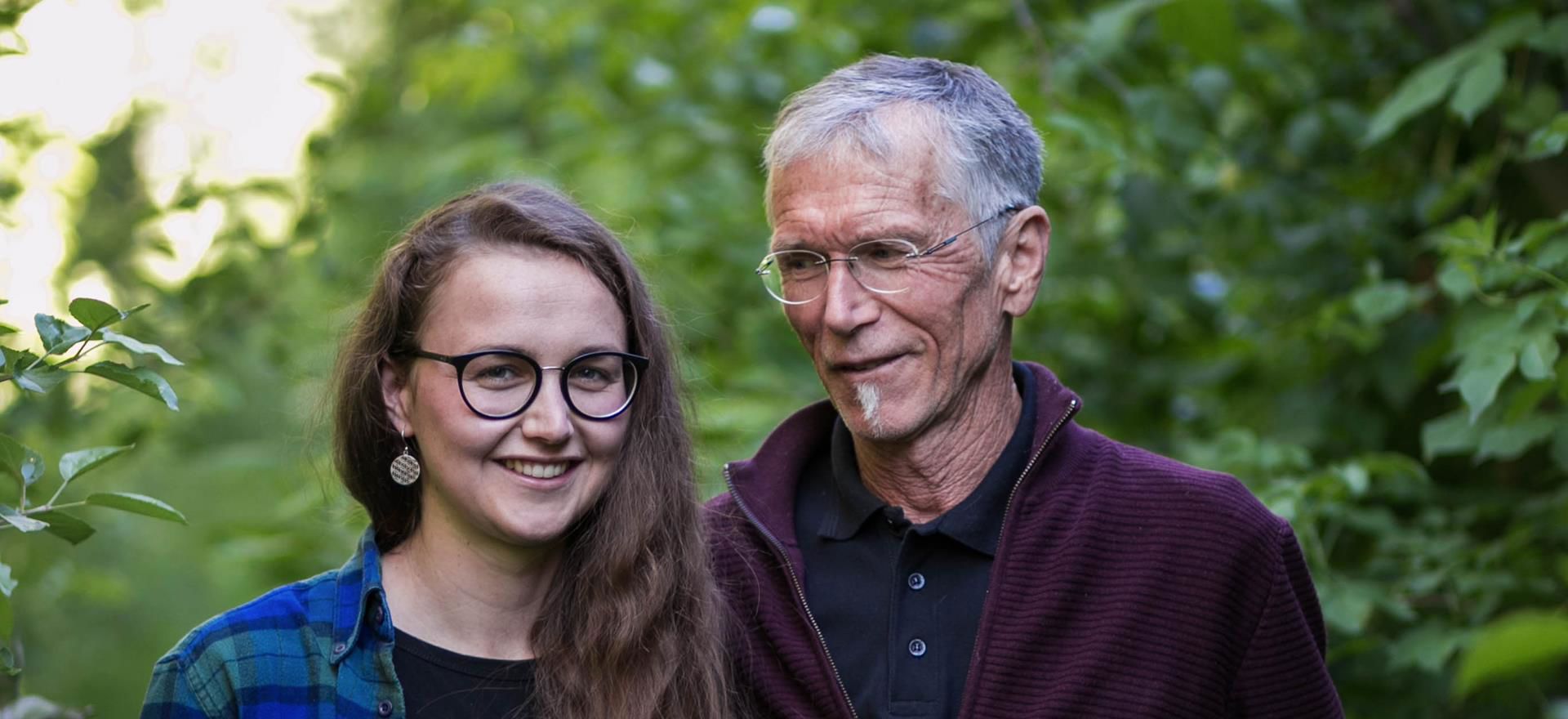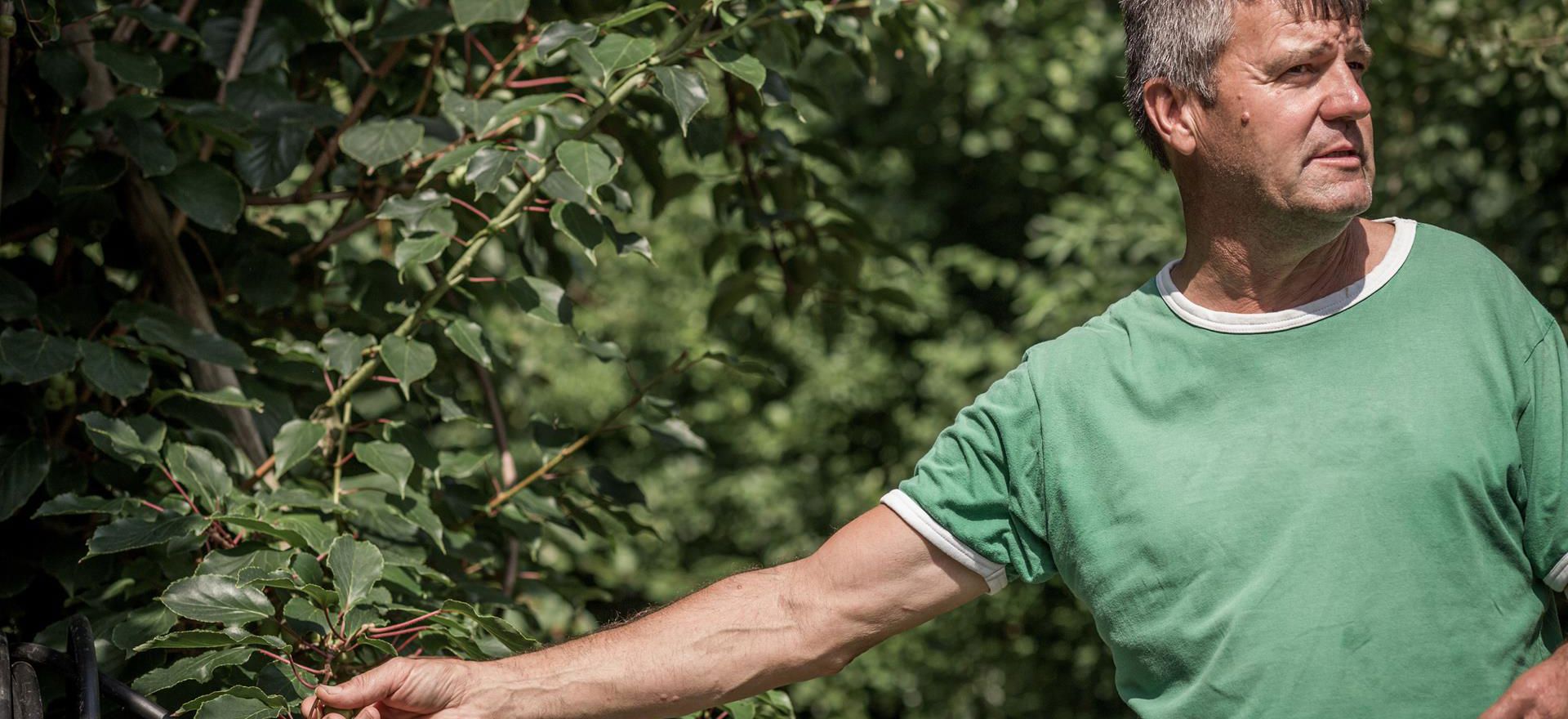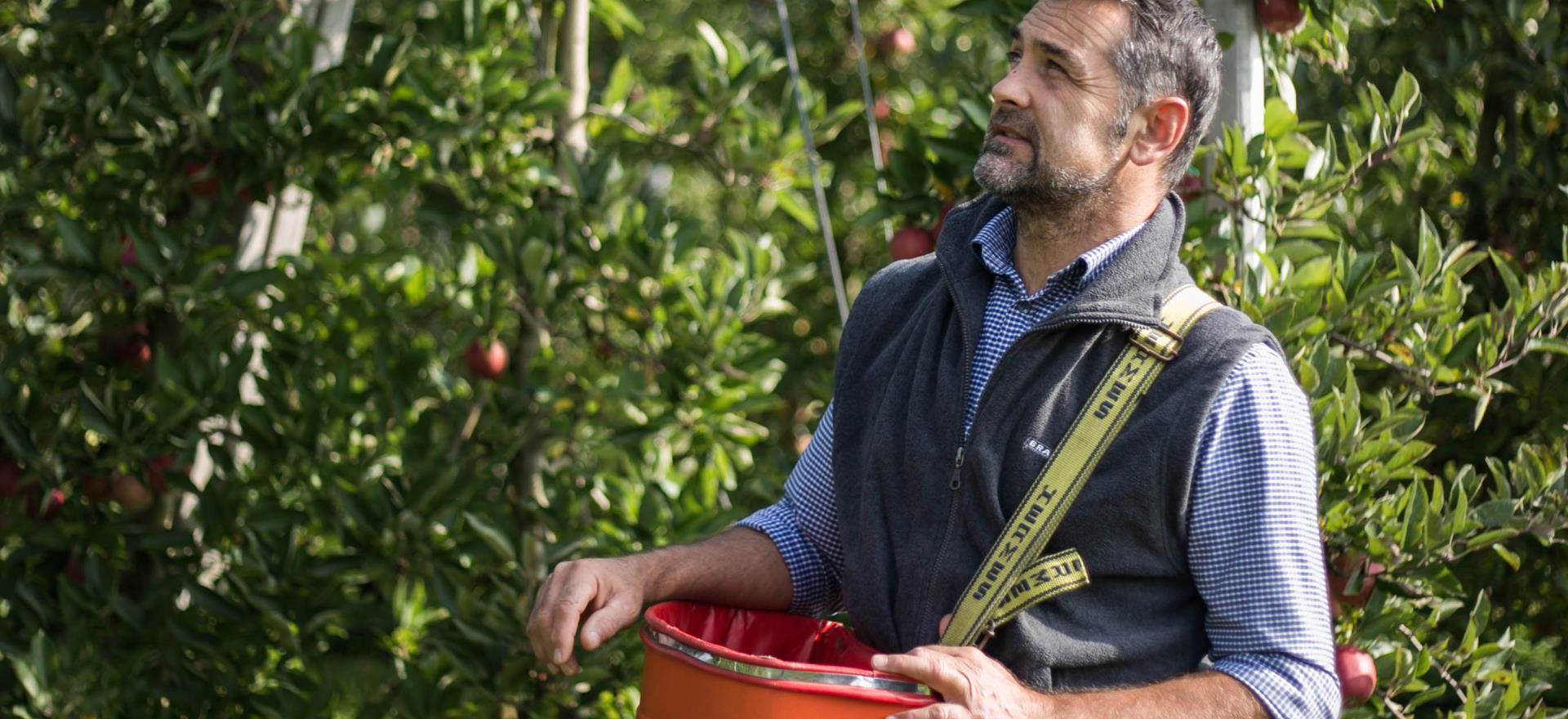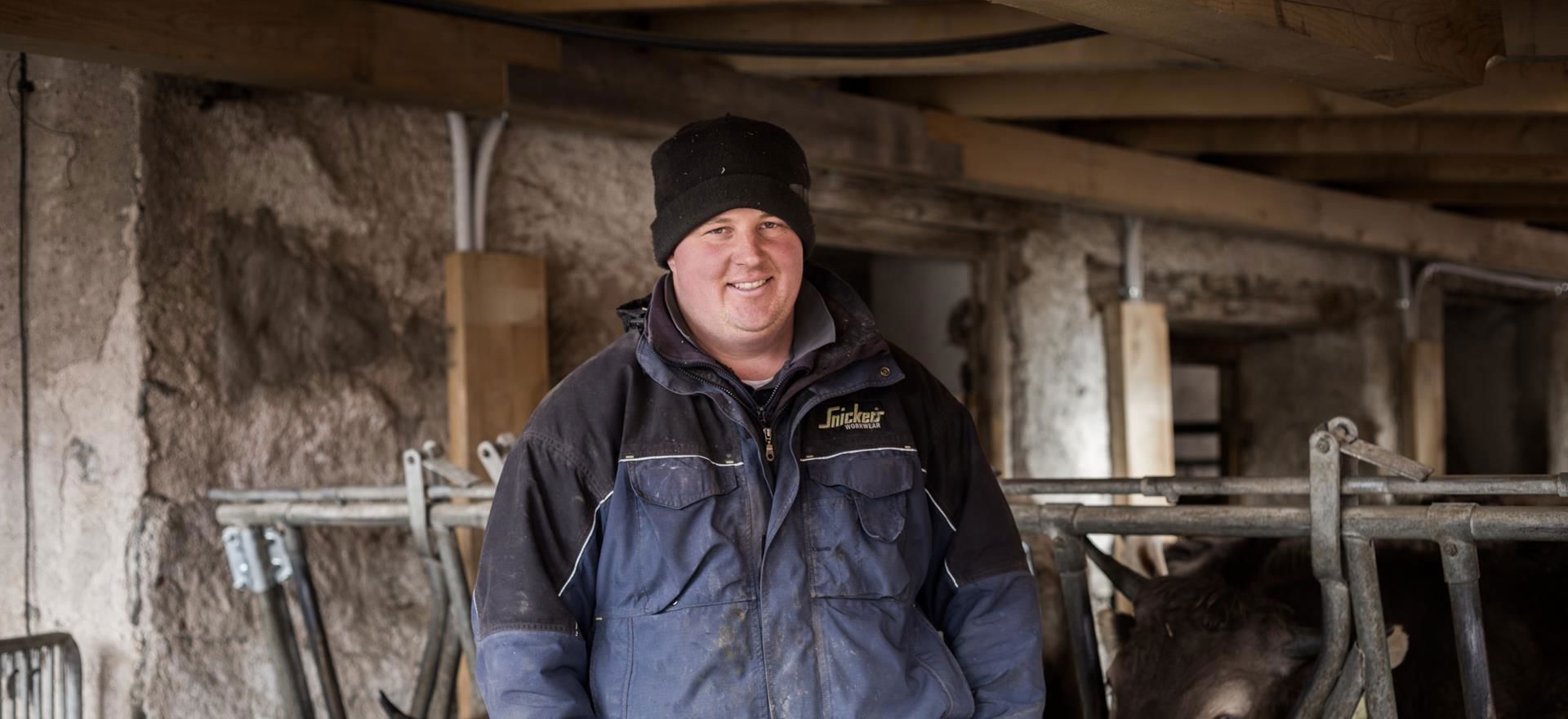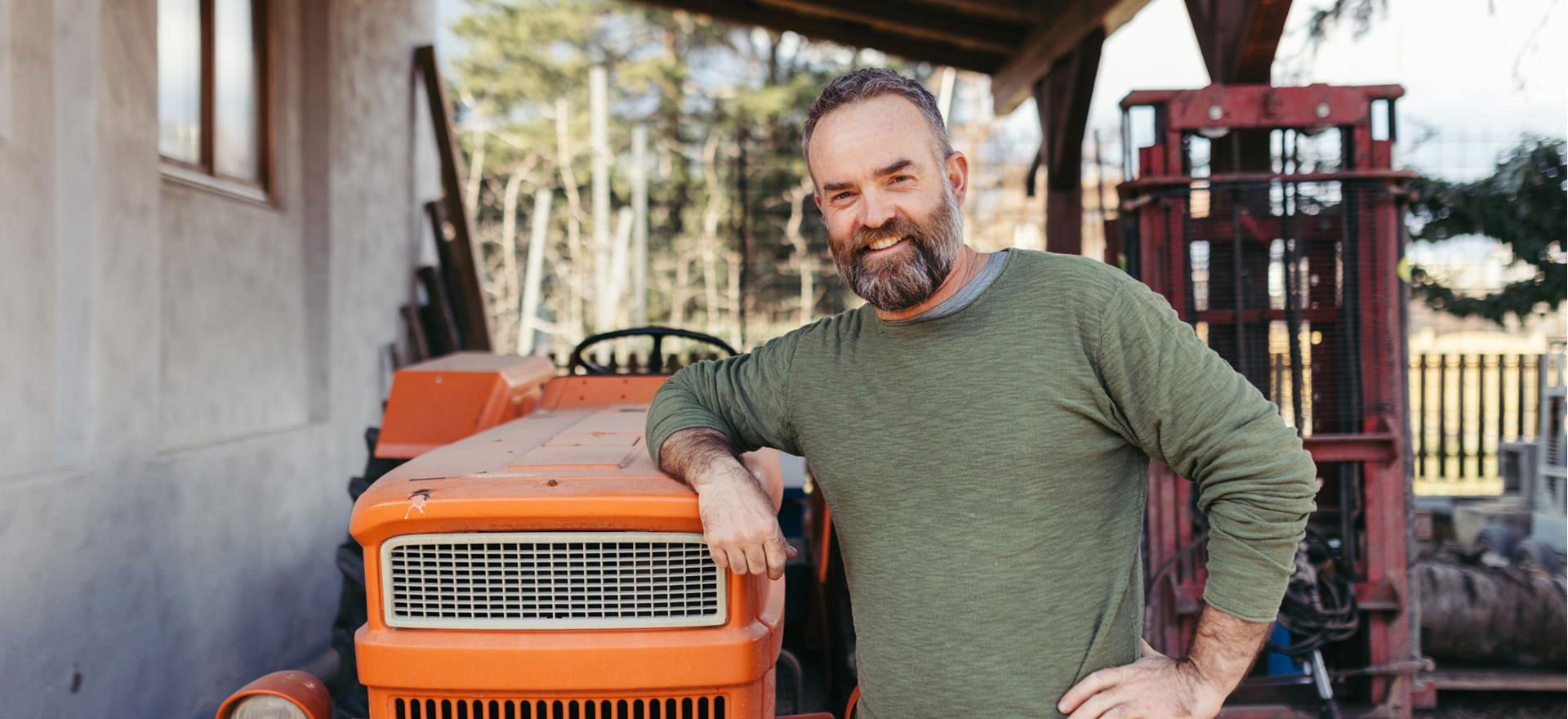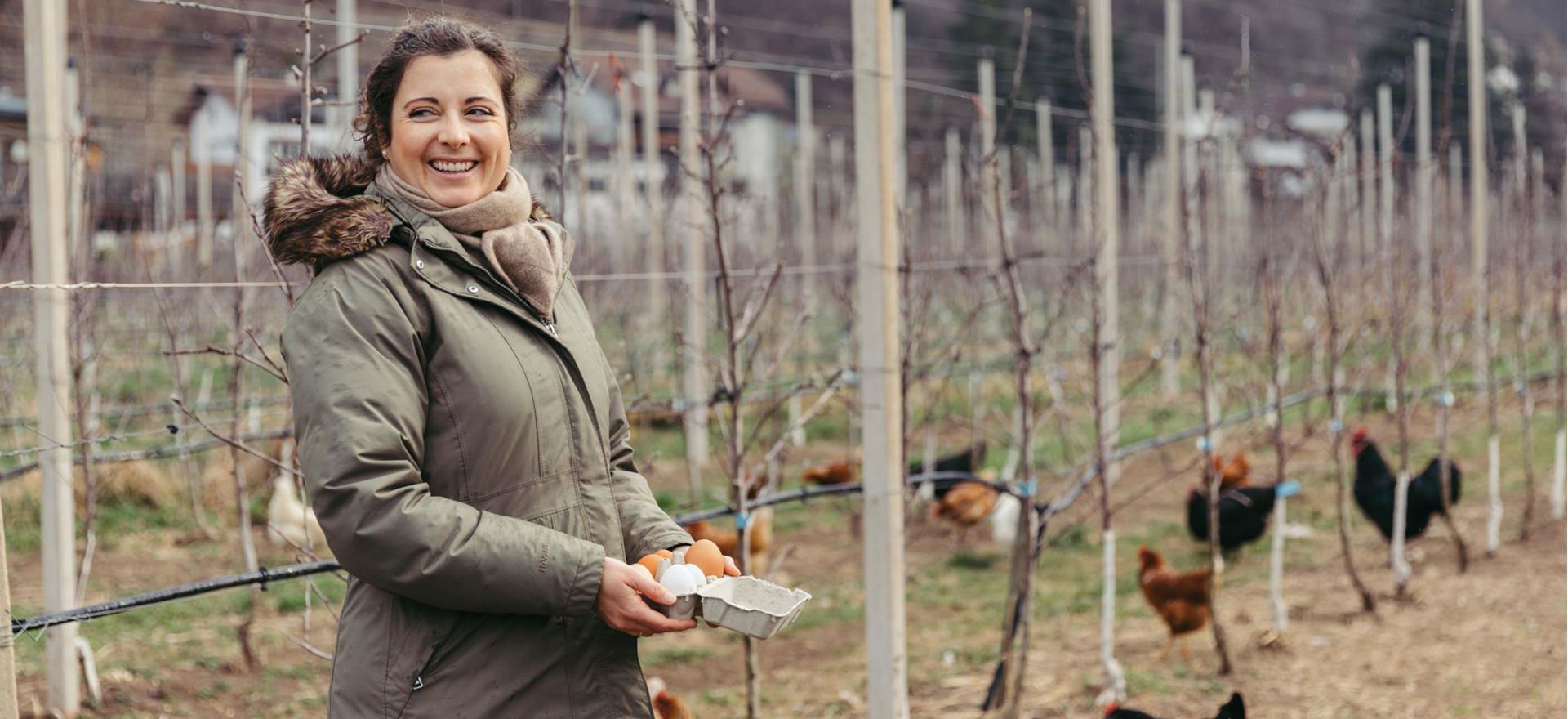Hartmann Calliari. First-generation organic farmer and former Vice Chairman of the cooperative Biosüdtirol. This afternoon chat in his summerhouse is all about organic apple cultivation in South Tyrol and the cooperative: “It all started with the idea of six farmers – that they would sell organic apples that they had cultivated themselves.” That was in 1990. Today the cooperative numbers over 300 organic farmers who, together with their families, manage their farms and meadows on a purely organic basis. “And just as resolutely and small-structured as it was back then,” says Hartmann.
Hartmann loves to compare the story of Biosüdtirol with a leap into ice-cold water. He knows all about the teething problems, the resistance to the project in the village, the concerns of some of his family members – and his own doubts. He understands the challenge of reinventing yourself and re-establishing yourself alongside other bioneers (biological pioneers). He has gone through the risk, sweated the work and the small stuff – signing the guarantees for the apple baskets and packing the apples himself after the harvest. And he has also experienced the joy of an idea finally blossoming like a flower: “It was a wonderful feeling to be able to work alongside my wife Judith and prove to my father that organic farming also works for apple cultivation.”



